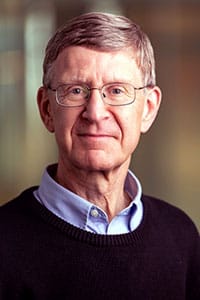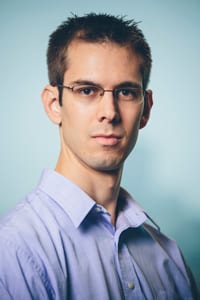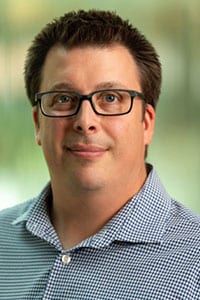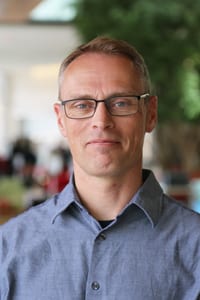As shown by the COVID-19 pandemic, viruses pose unparalleled, increasing threats to public health, the economy and national security. The last century is a history of the accelerating emergence of devastating viruses, bracketed by the 1918 influenza and COVID-19 pandemics, and including the global HIV/AIDS epidemic, intensifying Ebola virus outbreaks, the original SARS and MERS coronaviruses, Zika virus, and many other high mortality viral pathogens. Viruses also cause ~15% of human cancers and are suspected factors in varied neurological disorders. Even after COVID-19 is resolved, new virus outbreaks and periodic pandemics will continue and, due to multiple reinforcing trends, increase in frequency.
To counter these rising dangers, the Rowe Center has assembled a growing team of high impact, highly collaborative investigators whose research groups integrate molecular, computational, structural biology and other diverse approaches to pioneer new advances in understanding, preventing and treating viral diseases. In combination with collaborating partners across and beyond the University of Wisconsin – Madison campus, their results are revealing fundamental new insights into viral and cellular biology, and enabling new horizons for more effective and broader spectrum antiviral controls to help overcome and eventually to prevent future deadly viral pandemics.
Leadership
Paul Ahlquist, Director
The Virology Research Team at the Morgridge Institute is directed by National Academy of Sciences member Paul Ahlquist. In his capacity as a UW–Madison professor, Paul holds faculty positions in the University’s Department of Oncology in the School of Medicine and Public Health, the Institute for Molecular Virology under the Office of the Vice Chancellor for Research, and the Department of Plant Pathology in the College of Agricultural and Life Sciences. He is also the Associate Director for Basic Sciences at the UW Carbone Cancer Center. Paul’s research group studies the molecular mechanisms of viral replication, virus-host interactions and viral pathogenesis, including virus-induced cancers.
Anthony Gitter, Investigator
Anthony Gitter is a Morgridge Institute for Research Investigator and UW–Madison School of Medicine and Public Health Assistant Professor of Biostatistics and Medical Informatics. Tony studies the interconnected relationships in biological networks – how multiple genes or molecular pathways work together in living systems, particularly in biological processes such as disease progression.
Timothy Grant, Investigator
Timothy Grant is a Morgridge Institute Investigator and an Assistant Professor of Biochemistry in the UW–Madison College of Agricultural and Life Sciences. Tim’s expertise is in developing and applying new methods for improved imaging and image analysis by cryo-electron microscopy (cryo-EM). Cryo-EM is an increasingly powerful approach that is revolutionizing determining the structures of biological macromolecules (proteins, nucleic acids, etc.) and complexes at near-atomic to atomic resolution.
Megan Spurgeon, Investigator
Dr. Megan Spurgeon is an Investigator at the John W. and Jeanne M. Rowe Center for Research in Virology at the Morgridge Institute for Research. Dr. Spurgeon is also an assistant professor of oncology at the McArdle Laboratory for Cancer Research and Department of Oncology at the University of Wisconsin-Madison.
About the Rowes
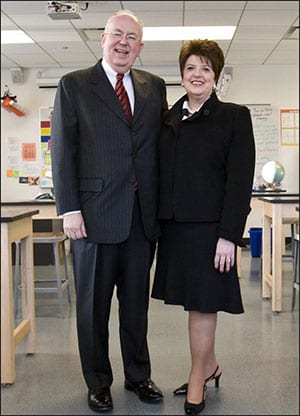
The Morgridge Institute launched in 2018 the John W. and Jeanne M. Rowe Center for Research in Virology, a new transformative research initiative made possible by the philanthropic support of John and Jeanne Rowe. The Rowes have been deeply involved in the Morgridge Institute’s first ten years. John served on the Morgridge Board of Trustees and as chair of the WARF Board of Trustees, and together John and Jeanne broadly supported the humanities and education at the grade school, high school and university levels.
John says that he and Jeanne have come to see biomedical research, and virology, as an area where their philanthropic support can change lives and help people. “All of the work that the wonderful scientists are doing (in the virology team) could really save a huge part of humanity,” adds Jeanne. “Their work reaches out to so many people—and can help so many more.”
“The Rowes are tackling some of humanity’s biggest viral threats and supporting research that could help stop hundreds of disease-causing viruses. Along the way, we are likely to learn things that have other benefits we can’t even predict,” says Morgridge CEO Brad Schwartz. “All of us at the Morgridge Institute are honored by their philanthropy, and the confidence they have shown in us.”

